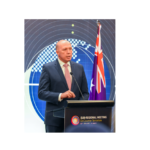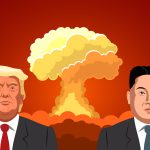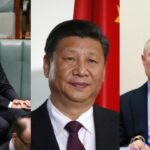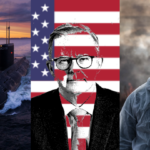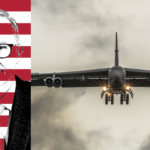Sleepwalking into War with China: Annette Brownlie on the 2024 IPAN Conference
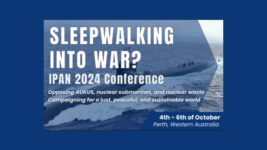
Like AUKUS, the Quad is the other strategic partnership between nations in the Indo Pacific region that commenced playing a significant role in this nation’s foreign policy outlook in 2021. And the Quadrilateral Security Dialogue comprises of Australia, India, Japan and the United States.
Quad leaders, Australian PM Anthony Albanese, Indian PM Narendra Modi, Japanese PM Kishida Fumio and US president Joe Biden again met last Saturday, this time in the US state of Delaware, to produce the Wilmington Declaration, which confirms it is a “force for good” in the Indo Pacific.
So, “as four leading maritime democracies in the Indo Pacific”, the Quad nation’s leaders declared its aim is to maintain “peace and stability across this dynamic region”, with a particular focus on opposing “destabilising or unilateral actions that seek to change the status quo by force or coercion”.
And just like the AUKUS, when the leaders of the Quad nations get together to discuss rising tensions in the Indo Pacific, they speak in convoluted terms about an unnamed threat, which is China, and neglect to convey that the threat it poses is a lot more economic than military in nature.
Deputy sheriff in the Indo Pacific
But when Australian ministers walk away from Quad meetings, they don’t appear to have the same level of impact upon this nation as do developments relating to the AUKUS pact between the US, the UK and Australia, as well as the AUSMIN meetings that solely involve Canberra and Washington.
Last month’s AUSMIN, a meeting of US and Australian foreign and defence ministers, saw our head of defence Richard Marles waxing lyrical about how US force posture, or its ability to launch an attack from a position, in Australia now “includes every domain: land, sea, air, cyber and space”.
Indeed, since the announcement of AUKUS in 2021, our nation has permitted the US inroads onto this continent like never before, which has involved movement toward establishing a US nuclear-powered submarine base in WA and US nuclear-capable B-52 fighter jets being stationed in the NT.
As the Independent and Peaceful Network Australia (IPAN) has been warning over its 13 years in existence, Australia is sleepwalking into a US-led war with China, which saw the initial steps set in place at time of the 2011 US Obama administration pivot to Asia, with this process now at a gallop.
Before it’s too late
IPAN is holding its 7th annual conference, Sleeping into War, in Boorloo-Perth. It will open with a 4th October seminar featuring Senators Fatima Payne and Jordan Steele-John at Perth City Library on 4th October, with discussions then held over the 5th and 6th at the Uniting Church Conference Centre.
A network of peace activists and organisations from across the continent, IPAN stresses that all are welcome, either to partake in person or tune in online, to join in the discussions on whether this nation should continue to be a frontline base for Washington to launch World War III from.
Sydney Criminal Lawyers spoke to IPAN chairperson Annette Brownlie about how it’s come to pass that Australia has been on a warpath toward China since 2011, with most of the population unaware of this, as well as how the nation is yet to have passed the point of no return on this issue.
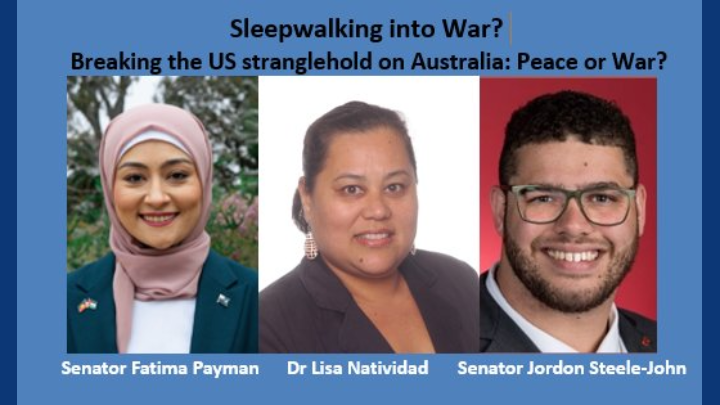
This year’s Independent and Peaceful Australia Network (IPAN) conference is being held over three days in early October, and the theme this year is “Sleepwalking into War”.
So, that’s referring to the buildup to a US-led war against China, and the push for this has been escalating at an ever-increasing manner since AUKUS was announced in September 2021.
Annette, can you talk about why sleepwalking is an apt way to describe how this nation is approaching the potential for a massive Indo Pacific theatre of war with this continent being one of its frontlines?
Sleepwalking into war describes the broader population of Australia, which is so focused on everyday living that it remains unaware, while high profile media, defence, academics and politicians have been constantly raising a panic over the threat of China.
The threat, as is explained, is to the US, and it’s due to the rise of China economically and, consequently, China’s rising military capabilities, and hence, this is perceived also as a threat to us, in our subservient alliance with the United States.
So, our challenge, as a peace movement, is to awaken our citizens out of the sleepwalking, so they understand the myth of this threat, as there is no indication that China threatens Australia militarily.
Yes, China does threaten the United States economically, and thus, its hegemony, and, as I said, Australia just falls into line, as a lapdog, to the United States.
IPAN commenced after the 2011 Pacific pivot, or Obama’s pivot to Asia. So, would you say from that point on the idea of war with China has been on the cards?
Yeah. Along with the pivot announcement was the joint announcement made with Julia Gillard that Australia was prepared to host a semipermanent contingent of US marines in Darwin.
And it was clear from this point on, that Australia was being considered as a launching pad for any war that may or may not go ahead against China.
So, the nation has been sleeping towards a war with China for the last 13 years?
That’s right. It has been. And we have seen a growing level of concern, particularly since the AUKUS announcement was dropped on us. That was done entirely secretly by forces outlined in the book that Andrew Fowler wrote, Nuked, which is an account of the AUKUS deal.
From that point on, we could see the development of Australia as a base for the United States and it has just progressively increased over the last 13 years, with increasing intensity since the AUKUS announcement was made.
Recent commentaries appearing in the Murdoch Press have involved criticism and defence of the position that three prominent past Labor politicians have taken on AUKUS. This involves former PM Paul Keating and former foreign ministers Gareth Evans and Bob Carr.
The senior Labor statespersons have been warning that the amount of control that the Australian government has gifted the US under AUKUS has relegated this nation to something of a 51st US state or an American territory, like Puerto Rico or Guam.
For those not following the AUKUS developments keenly this might sound like a sensational position to take, but can you explain why there does appear to be a “compromise of sovereignty” involved in the current situation the Albanese government has landed us in?
Australia has never really had sovereignty. Our Constitution was written in 1901. We still had very strong ties to Britain following that, and after World War II, we, more or less, handed over our care and protection to the United States.
It is my argument that we’ve never really had sovereignty. Given that we’ve never had a treaty with First Nations peoples, we’ve never really had that independence as a nation.
You might consider that we have, but we’ve never had the type of sovereignty that we’d need to have if we are ever going to be a player in the region, in which we live.
Our independence will come at some point in the future, when we have a leadership that backs that separation, and that leadership will need the backing of the Australian people to see that change.
And you mention treaty there. Is treaty key to independence in Australia?
Well, I think it is. Acknowledging the 60,000 years of another people living in this country before colonisation, is a necessary step for us to realise the next step, which would be becoming a republic and cutting all ties together with Britain and the United States.
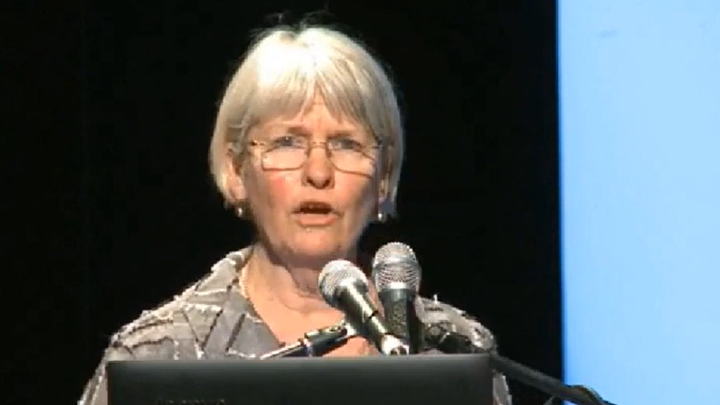
The last year has been marked by the Gaza genocide, which has been the largest atrocity since World War II, and it involves Israel throwing all international norms out the window.
Australia has shown unbridled support for Israel over the entirety of this mass killing spree, apart from some measured handwringing of late about violence towards civilians, which flew out the window when the nation last week abstained from a UN resolution calling on Israel to end its occupation of the occupied Palestinian territory within the next 12 months.
What sort of effect would you say Australia’s support for Israel is having, and how does this development factor into the wider picture regarding the escalation to war with China?
People are seeing the horror of Gaza, the West Bank and now, Lebanon, with the horrendous impacts upon everyday people, and this must be impacting everyday people in Australia.
They see that horror and they see our government not taking a strong stand, but rather falling into line with the US, most recently on that vote in the United Nations, even though it was an abstention and not a veto.
It still was falling into line with US interests and the interests of the Zionists, pro-Israel lobby, in Australia.
It’s important that we acknowledge this pro-Israel lobby in Australia, as the question is whether it is the lobby, or it is the United States that drives our government to be so weak on what is happening in the Middle East.
But what it does tell our people is that we are not particularly courageous: our leadership is not courageous.
Our leadership is not prepared to take an independent stand to say what most people in this country feel about the horror of what is happening in Gaza and the region.
It undermines our sense of self-respect. It is something that is lacking in Australia. We don’t have a strong sense of identity, in who we are.
That’s why going for a treaty with First Nations people would be a step in the right direction for that sense of who we are, and standing up against falling into line with the United States would be another step in the right direction for that independence and self-respect as a country.
But over the last year, it’s appeared at times that Australia has gone the extra mile in its support for the US in terms of backing Israel, and this is in respect to other close US allies.
Yes. It seems to be. Just in respect to that resolution last week in the UN, New Zealand voted for it. France voted for it. But Australia just abstained. It is just a sign of weakness.
And it bodes well to the other question in terms of China: are we going to fall into line again for another American-led war effort, with this one being the mother-of-all wars?
To even think about a war with China is insane. The losses will be for everybody. There would be no winners in a war against China.
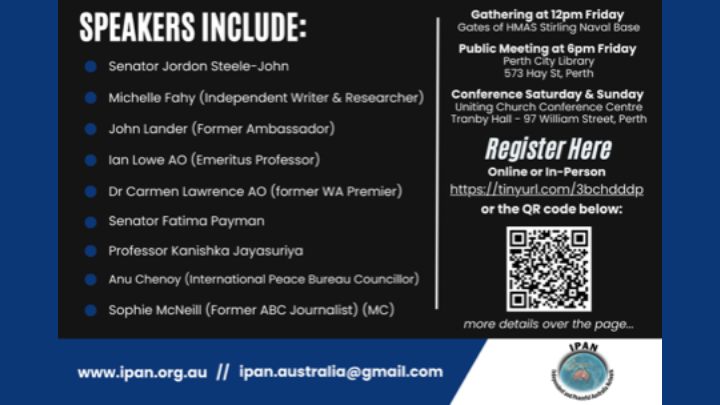
The IPAN conference is taking place at Perth’s Uniting Church Conference Centre over the 4th to the 6th of October. What is it going to entail and who have you got lined up?
It’s a big conference in the sense that we are covering off on a lot of issues.
The main topics include AUKUS, developing partnerships in the Asia Pacific region, campaigning for a more independent and genuine defence policy for Australia, impacts of war on the environment and Indigenous rights, lessons from Gaza and countering the threats of nuclear war.
The conference will also have a focus on working out what we need to do to prevent a major war in our region, which would be World War III.
So, they’re big issues and we have some amazing people coming along, including Senator Fatima Payman and Greens Senator Jordon Steele-John.
We’ve also lined up an international guest, Dr Lisa Natividad from Guam, which is the tip in the spear for the American strategy of encircling China, so I’m sure Lisa will bring to the conference some interesting and relevant information about how that little island has been primed for the next war.
There is a whole list of other speakers for the entire conference. Teachers for Peace are coming. People from MAPW (the Medical Association for the Prevention of War) are coming.
Former ambassador to China John Lander will speak, along with another guest from India, Professor Anu Chenoy, who will be speaking about the role of India in the Quad and NATO moving into the Indo Pacific.
It’s a full conference. There will be a lot to learn and discuss. And we’re hoping that it will motivate and get people involved in building that community consensus that we need to turn this ship around.
We are in dangerous waters, and we need to turn this ship around and take another approach to foreign policy.
Annette, you’re saying there is a chance to turn the ship around. Further issues that will be on the agenda at the conference involve how this nation can build ties within the Asia Pacific region and how to forge broader independence.
So, lastly, can you tell us about the Australia IPAN envisions for the future, as an alternative to being incorporated into the US military industrial complex, which AUKUS appears to portend?
I imagine that Australia could be an equal partner with the countries of the Asia Pacific, as we have a big country, an island continent, where we do border Asia, Southeast Asia and we do border the Pacific.
So, IPAN’s vision for the future is that we identify as part of that region and we build just and peaceful relations that are based on all of our interests, which includes addressing the environment and climate change.
Thinking into the future about the impacts of climate change, where there will be a lot of people seeking refuge in countries in this region and Australia will be one of them, as the forward planning for that is yet to be seen.
But also, to look at equality economically, to have open dialogue between all of the countries, and that includes China.
We cannot exclude China from the Asia Pacific region and in the future, if Australia is to feel secure, then we need to get off this path to war and get onto a network of dialogue and cooperation.
So, a multipolar world and getting away from the idea of a hegemony. The future for humanity is a shared future with cooperation between peoples in every country.



